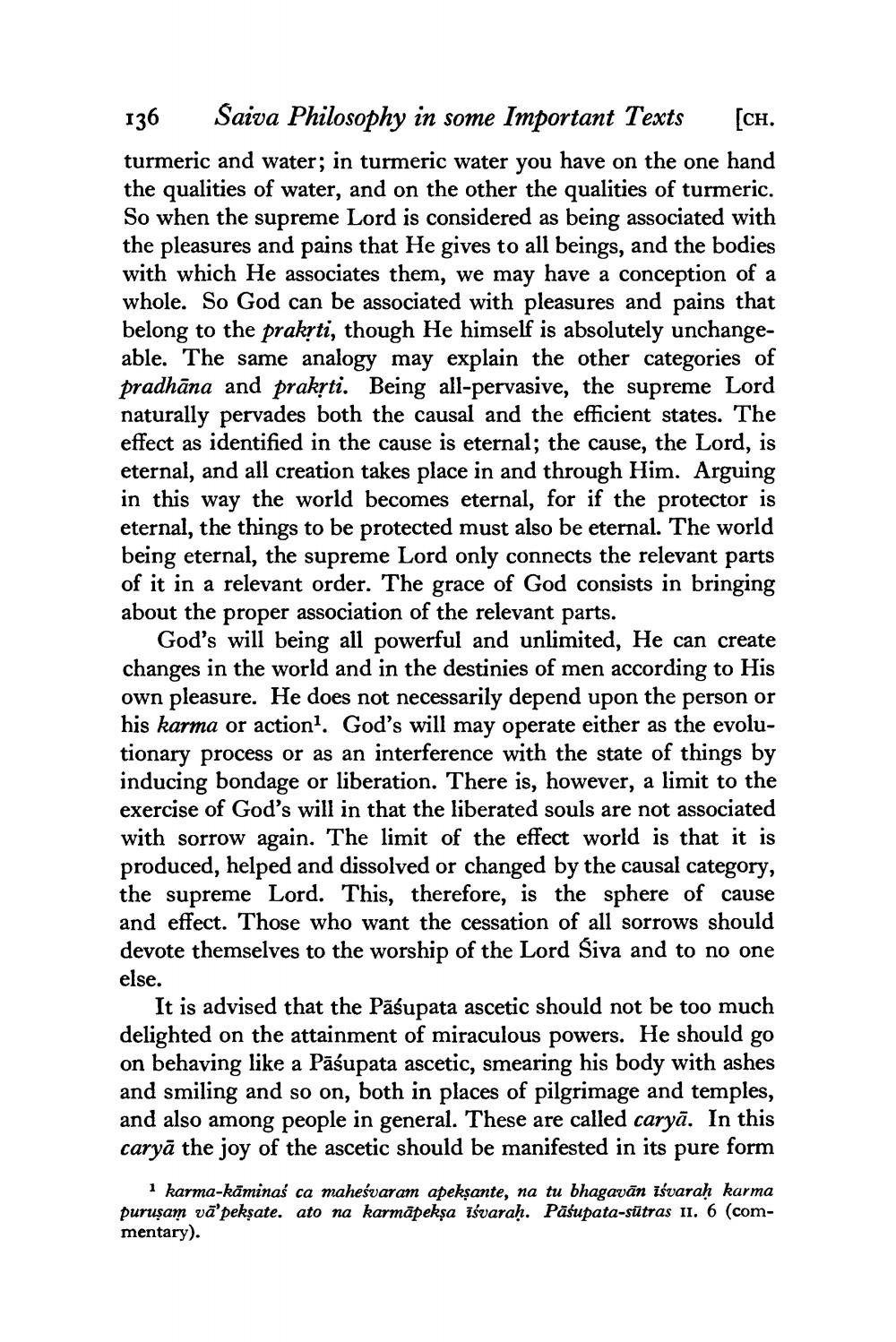________________
136 Saiva Philosophy in some Important Texts [CH. turmeric and water; in turmeric water you have on the one hand the qualities of water, and on the other the qualities of turmeric. So when the supreme Lord is considered as being associated with the pleasures and pains that He gives to all beings, and the bodies with which He associates them, we may have a conception of a whole. So God can be associated with pleasures and pains that belong to the prakrti, though He himself is absolutely unchangeable. The same analogy may explain the other categories of pradhāna and prakrti. Being all-pervasive, the supreme Lord naturally pervades both the causal and the efficient states. The effect as identified in the cause is eternal; the cause, the Lord, is eternal, and all creation takes place in and through Him. Arguing in this way the world becomes eternal, for if the protector is eternal, the things to be protected must also be eternal. The world being eternal, the supreme Lord only connects the relevant parts of it in a relevant order. The grace of God consists in bringing about the proper association of the relevant parts.
God's will being all powerful and unlimited, He can create changes in the world and in the destinies of men according to His own pleasure. He does not necessarily depend upon the person or his karma or action'. God's will may operate either as the evolutionary process or as an interference with the state of things by inducing bondage or liberation. There is, however, a limit to the exercise of God's will in that the liberated souls are not associated with sorrow again. The limit of the effect world is that it is produced, helped and dissolved or changed by the causal category, the supreme Lord. This, therefore, is the sphere of cause and effect. Those who want the cessation of all sorrows should devote themselves to the worship of the Lord Siva and to no one else.
It is advised that the Pāśupata ascetic should not be too much delighted on the attainment of miraculous powers. He should go on behaving like a Pāśupata ascetic, smearing his body with ashes and smiling and so on, both in places of pilgrimage and temples, and also among people in general. These are called caryā. In this caryā the joy of the ascetic should be manifested in its pure form
i karma-kāminaś ca maheśvaram apeksante, na tu bhagavān īśvaraḥ karma puruşam vā'pekșate. ato na karmāpekșa īśvaraḥ. Pāśupata-sūtras II. 6 (commentary).




